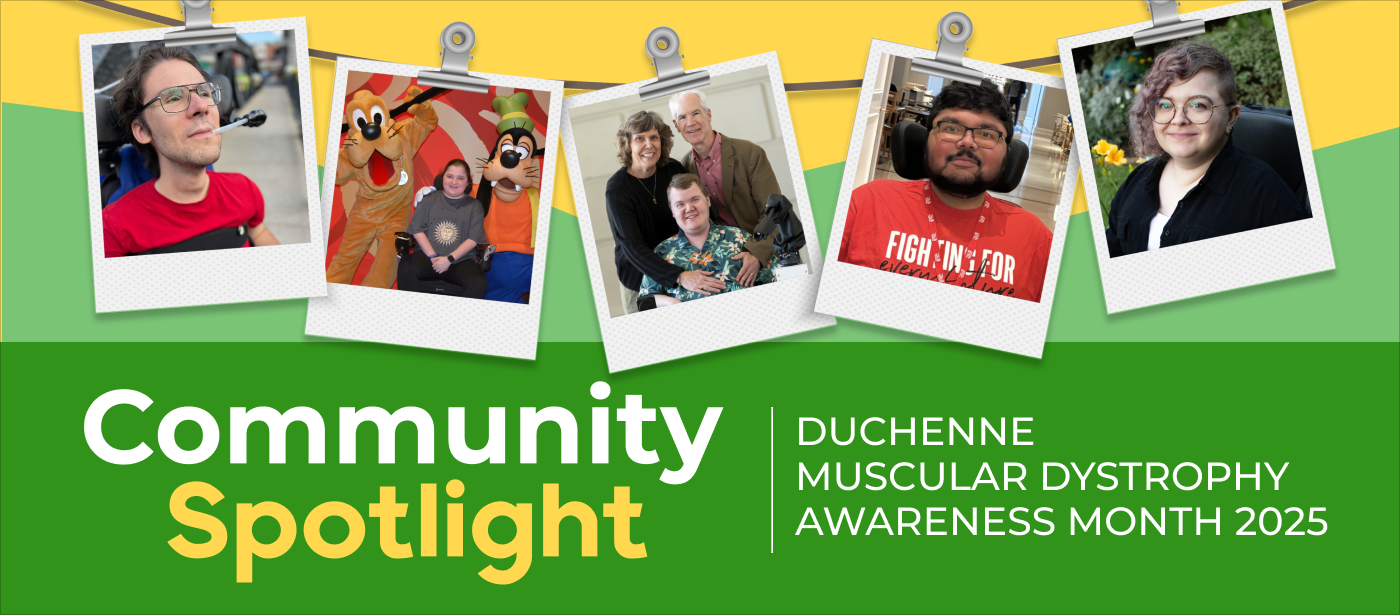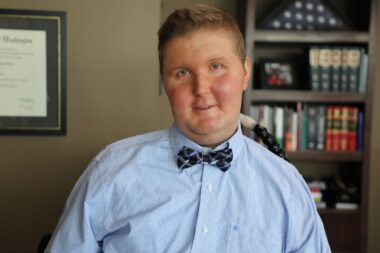Advocating for change with Duchenne muscular dystrophy
Written by |

In recognition of Duchenne Muscular Dystrophy Awareness Month in September, the Duchenne Muscular Dystrophy Community Spotlight campaign features a series of stories highlighting the real-life experiences of people affected by Duchenne muscular dystrophy, written in their own words. Follow us on Facebook, Instagram, X, and Pinterest for more stories like this, using the hashtag #MDSpotlight, or read the full series.

Conrad Reynoldson is pictured in his office. (Courtesy of Conrad Reynoldson)
I was diagnosed with Duchenne muscular dystrophy at age 3. By the time I was 10, I was exclusively using a power wheelchair for mobility — and I’ve been rolling ever since.
Living with a chronic physical disability has certainly made life more complicated. I’ve faced discrimination and barriers to inclusion, and as a result I have deeper insight into the struggles many other marginalized groups face.
Yet navigating an inaccessible world has helped sharpen my problem-solving skills, strengthened my optimism, and deepened my empathy — all invaluable qualities for an effective attorney.
At my nonprofit disability rights law firm, Washington Civil & Disability Advocate (WACDA), we litigate cases in areas such as employment, housing, government services, and public accommodations. We focus primarily on physical accessibility, but have expanded to address effective communication, service animal rights, and fair housing.
My disability is visible the moment I roll through the door. Sadly, this first impression has often pushed me to the back of the job applicant pool. To counteract this, I try to acknowledge the elephant in the room and diffuse the awkwardness — sometimes with success, sometimes not.
After experiencing discrimination several times, I decided to hire myself. I networked and studied everything I could about the Americans with Disabilities Act (ADA). I started by working part-time on ADA cases, which eventually led to full-time solo practice. Ultimately, I founded WACDA.
In the few years since its creation, WACDA has thrived, making a meaningful impact through litigation, education, legislative advocacy, and resource referrals. We now offer volunteer and internship programs and have ambitious plans to expand our reach.





